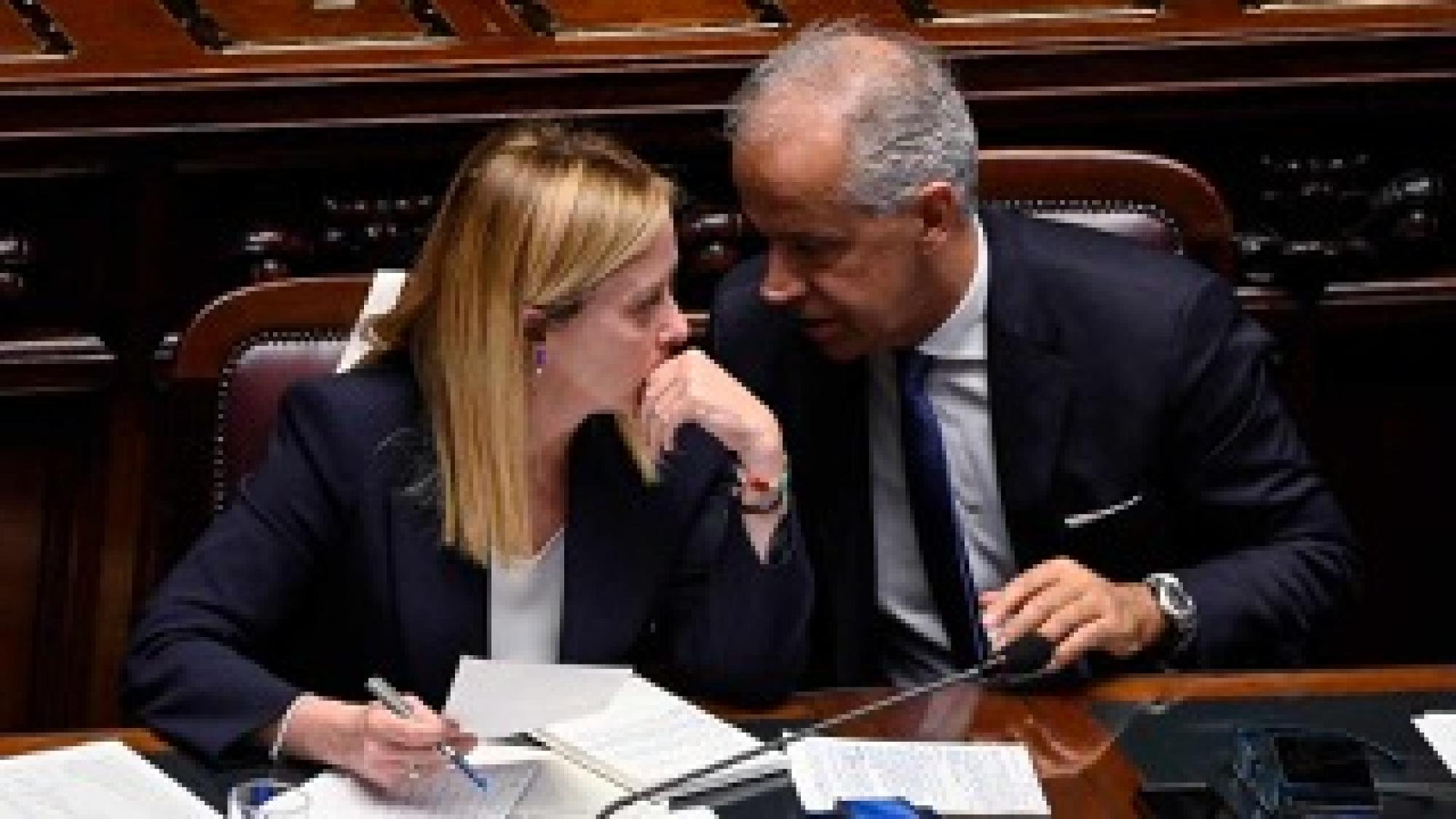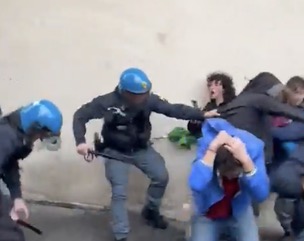The right to dissent: How Italy is shutting people up.
How the right to dissent in Italy is under attack.

I am writing this short piece due to what happened in Italy on Friday, February 23rd 2024. In two cities, Florence, and Pisa there were pro-Palestinian protests organized by an Italian syndicate and with social groups of students. These citizens organized a protest to contest what is happening in Gaza and in the West Bank. Especially in Pisa, high school students tried to go from one square to another peacefully, when the police beat them up. 13 young people were injured in Pisa. 5 in Florence. By whom? By the Italian police.
If you watch the video made in Pisa, you will see the students were not wearing masks, they did not have any dangerous objects. However, the police beat them up; threw people on the floor; chased them. This caused a massive reaction on social media: videos circulated fast, and lots of people were outraged by what happened. From the government: no reaction. On the contrary, our Foreign Minister, Antonio Tajani declared that the Police cannot be touched. Surprisingly (because it is not common, for real) the President of the Republic, Sergio Mattarella, gave a strong sign. He called the Ministry of Interior and he tweeted:
The President of the Republic pointed out to the Minister of the Interior, agreeing with him, that truncheons do not measure the authoritativeness of the Police Force, but by the ability to ensure security while protecting the freedom to publicly express opinions. With the kids, the truncheons express a failure.
This message does not need further comments.
The answer of the Minister of the Interior arrived today 25th February saying that ‘our Police is one of the best in the world'.To the criticisms of the President, there was no official answer by the Italian Prime Minister. Its (her?) party (Fratelli d’Italia) declared: 'Blame the left that supports the violent'.
Towards a security country?
 Despite we cannot generalize and say that the Police are violent and exercise violence against people, in Italy there is a huge problem related to the securitization of protests and not only. One main problem is that policemen are not identifiable; therefore, if there is a protest and a policeman starts beating someone, videos cannot identify and recognize them.
Despite we cannot generalize and say that the Police are violent and exercise violence against people, in Italy there is a huge problem related to the securitization of protests and not only. One main problem is that policemen are not identifiable; therefore, if there is a protest and a policeman starts beating someone, videos cannot identify and recognize them.
These episodes are (unfortunately) not new in Italy: policemen exercise their violence against prisoners; it happened they insulted mistreated, and beat up a transgender girl (); 12 people were identified by the Police because they were putting flowers for Navalny’s death on a square.
This (again) is not news. Indeed, Italy (and the world) cannot forget what happened in Genova in 2001 during the protests of G8: the ECtHR sanctioned Italy for not having the crime of torture, because yes, policemen tortured protesters: they entered a school offered to protesters who had flocked to the G8 and perpetrated all kinds of violence; in the Bolzaneto barracks where they had taken the arrested protesters, they forced people to stand for hours and beat them up. They tortured them. and one guy was shot (accidentally) in the middle of a protest. We cannot forget the death of Stefano Cucchi, a guy who died in a penitentiary hospital: he had been arrested one week before because of drug possession. Brought in the Police station. Beaten up. Again. He was not the first and not the last. )
These are past episodes, and Fratelli d’Italia was not the first Party. However, in this 1 year and a half of government we are experiencing an inclination towards securitization of our State. The first law the Prime Minister Meloni proposed was to criminalize ‘rave party’ . The Minister of Education is taking restrictive measures against students who occupy schools. During the opening of La Scala, one of the most famous events in Milan, a man shouted: For Italy Antifacist (Viva l’Italia Antifascista)!, they notified him to the Police. He was declaring a principle of the Italian Republic, provided by Art. 12 of transitional and final provisions forbidding the constitution of the fascist party. But, according to the Police, this opinion was a problem for the security of the country.
The thinking
The GEM Diamond Project asks us to explore the concept of dissensus over liberal democracy.
What happened in Pisa and Florence, and what is happening in Italy in general, made me think I should write something about how Italy is going far from being a liberal democracy. The dissensus over liberal democracy is expressed also in the annulment of dissensus expressed by people. We have been discussing the concept of dissensus for almost 2 years now, and (obviously) we arrived several times at the conclusion that there is negative and positive dissensus. I would add now that the negative dissensus over liberal democracy is shutting up positive dissensus. The protests were against the war. The protests were for peace. How to live in a country where you can no longer reunite to protest? Italy is slowly (not so) eroding the right to dissent, and this is clear. This right is written in the Italian Constitution, art. 21, but also in the EU Charter of Fundamental Rights, art. 11.
The privilege of studying as a Ph.D. fellow in this program made me think I also have the duty to look at the world, beyond my research topic. Thus, I had to report what is happening, demonstrating that one of the EU founders, the country of Altiero Spinelli, is now contributing to the crisis of the rule of law in the EU. I thought non-Italians must know. That these things should not happen. And that the EU institutions should react to this.
Benedetta Arrighini
